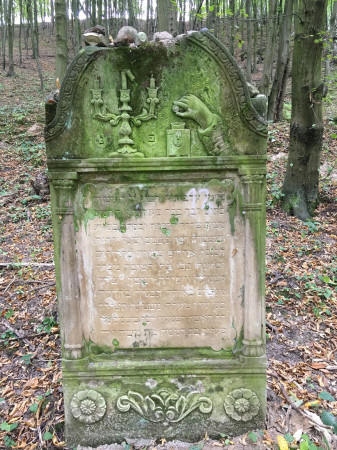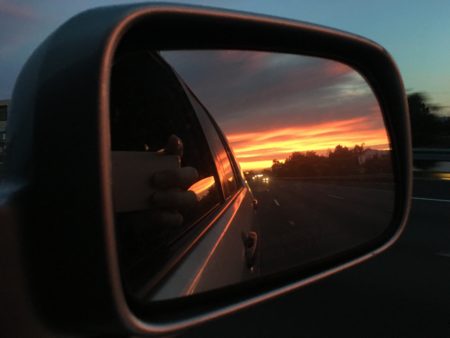
“You are a vagabond,” a friend says.
“A ‘nomad’ sounds better,” I reply.
I have been moving from place to place for two years, a contrast to the four or so previous decades when I remained put – in New England, a locale known for its generations of hunkered down, resolute inhabitants.
It isn’t as though I planned an abrupt change of mode, style, way to live a life. A rebellion one might call it, in that particular culture. It just happened.
All fruits arise from flowers, but not all flowers bear fruit. Have the last two years of movement been the precious fruit of my labor the forty years beforehand?
I sit with six friends in the living room of the house in which I spawned and then raised my two children, and we, my friends and I, all of a certain age, old enough to reflect on sown seeds and tilled fields, we speak of, ‘Where to from here?’ We are alluding to the imminence of death but also the period remaining as life.
We are sixty something, seventy something, eighty something year olds, and the question arises from my having challenged someone’s assumption of the predictable.

“I want to make a dinner, when you’re back home, to talk about what you have been doing,” my friend Claudia wrote to me in California a few months earlier. “I am provoked by your going off to Paris for a year and now Los Angeles. It makes me think about intention and whether I should take heed.”
I thought I understood what she meant, although it hadn’t occurred to me that my contemporaries would have their own projections in response to my decision to fly the coop, leave the nest, close down shop. I had retired from my longterm job as psychotherapist, applied to every artist residency I could find, and, as if the Jewish expression, ‘From your lips to God’s ears,’ was in fact the case… Paris accepted me. Six months away, and then another six added on as a bonus later.
It wasn’t easy to manage, I can attest to that — arranging a whole life into neat piles stowed away in the attic and the basement — but I had no regrets. I had been waiting eons for just such a moment, and it had plopped itself smack dab into the center of my life, just like that. Whatever smack dab means…
It was a dramatic juggernaut of a sea change. No more therapist, no more mom, no more New England homeowner. Identities scrapped like so much scree on a hillside, and new ones acquired.
“I am an artist and a writer,” I said to the other residents at my new artist community. Gone the formal calling card of Lydia, Psychotherapist, replaced by a new graphic image of sculptured forests and Lydia, Artist/Writer proudly declared.
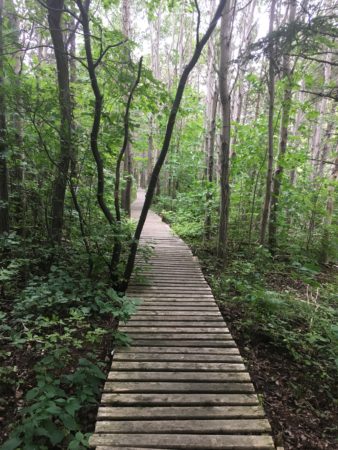
I lived small, I lived large — a tiny studio, but in the City of Light. I spoke French badly with the accent of the detested foreigner, but I reclaimed a family history that reminded me this was home.
After years of bearing witness to individual suffering, tissues plentiful, a bottomless pitcher of empathy, I marched out into the French arrondissements, an urban wilderness chronicling eras, epochs of societal accomplishment and also disgrace. I absorbed culture like food after a fast. But I also inhaled tales of war, plaques marking deaths mounted on every second or third edifice, schools acknowledging, on their stone facades, the collaboration of the French in the killing of Jewish children in the War. I bore no responsibility. My family names were listed on the walls of the innocent.
I was sad about the past.
I was happy in the present.
The six women sit on my living room couch and chairs and sip tea. Claudia, the instigator of the get together explains her reaction to my decision to be away, to go toward, to be intentional.
“I live with endless lists of things to do,” she starts. “I cannot finish what I have set out to accomplish in a day, a week, so I do not think I will die. I will just keep crossing things off the list, and it will carry me on and on. Endlessly.” We nod, the others. We understand. “But when Lydia stopped all that and took a year, it gave me pause. Should I too consider a change or at least make certain that I am being conscious?”
I considered. Was that what I had done? Been conscious?
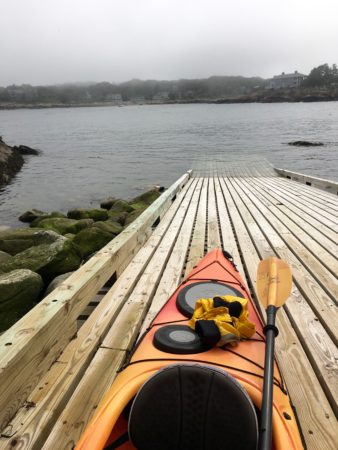
Movement is integral to the fabric of my personal and social story. The Jews, the diaspora, no homeland. Each period a new temporary refuge. The Poles will let us be here for a while. What about Morocco, Spain, the Ottomans, the Romans? Yes, we have been welcomed and then sent away.
And my parents’ ins and outs from Poland to Paris to Spain to the U.S., plus the four cross-country shifts of family domicile that gave birth to my description of self as bicoastal. Does that suggest a vagabond or a nomad, a survivor or an intrepid adventurer? Should I feel pride or shame? And would that in itself be a Jewish question, rather than evidence of a personal anomaly?
“I am happiest in my home,” another friend pipes up. “I can travel to see my kids, my grandkids, but the truth is, I have no desire to make changes in my routine. It works for me.”
I hear and cannot imagine. Where is the curiosity, the sense of adventure, the push to grow? Are we slowing down already? My heart is heavy.
And yet. This friend has had cancer. Her husband had his own malignancy. They know something I can’t even imagine. Plus they contribute significantly to the welfare of the community and volunteer up the wazoo. Why wouldn’t it be enough to do good work and to be settled in a stable home with loved ones at this time of life?
I slow my breathing. Different realities. Different histories. Some of these women may have grown up in situ – one home, one set of parents, one expectation. Create a life and cherish it. Who needs a bucket list when just being alive is the prize?
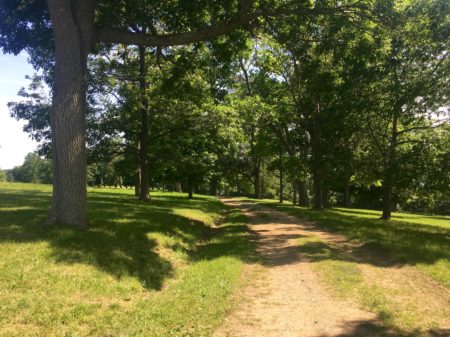
The group of women disentangles itself into this particular story thread and that. We are not at all the same. One woman has created a new career in the last few years and that feels rejuvenating. Another runs what sounds like an estate with a complicated business of airbnb rentals and writing workshops. She worries about ever feeling free to toss the whole enterprise and leave her longterm clients in the lurch. They adore her property as a sacred place of respite. How can we turn our backs on those who depend on us?
I speak to the group of leaving my forever therapy practice and saying goodbye. The ache of endings. And the subsequent discovery of new facets of my persona. Is a letting go simply an opening to possibility, and, if that is so, why do we all resist so strongly? Attachment vs. opportunity, security vs. adventure, old vs. new.
I do not imagine that my choice suits any other person than me. If others do try it on and reject it, all the better. It means that we all are considering, turning each new idea this way and that. There is no precedent for a whole generation with so many people living into their nineties, some to a hundred or more. There have always been outliers, but now we are privileged or burdened, depending on one’s point of view, with the expectation of long life.
The women in my living room drink their tea and listen to each other. We come to no conclusions. We will follow our various journeys through the years that are left to each of us, wandering the disparate paths that we choose or fall into, and we will simply require of ourselves to be awake. Is this how we want to be living? Are we aware of the breadth of choice? As long as we can consider with eyes open and nod yes, we are doing okay with, in Mary Oliver’s words, the one wild and precious life we are each given.
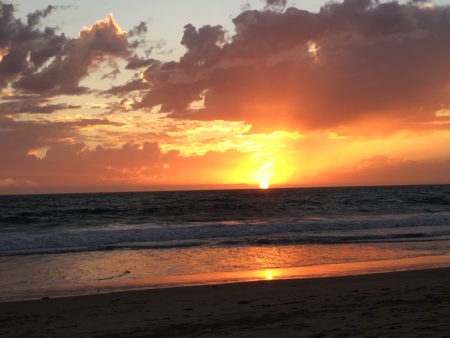
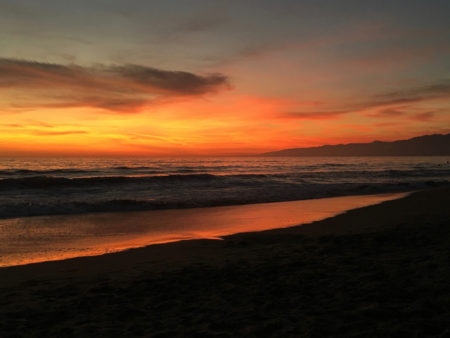
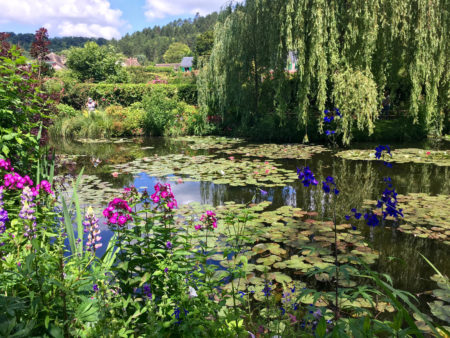
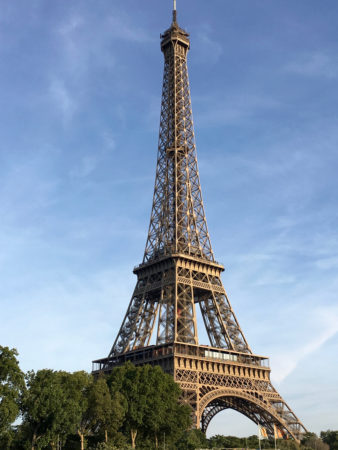
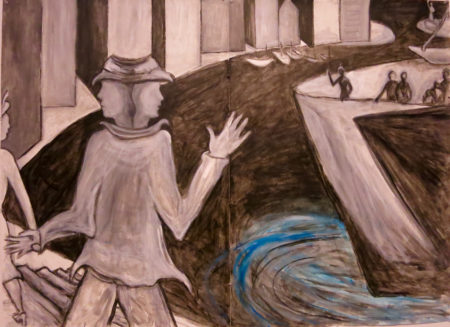
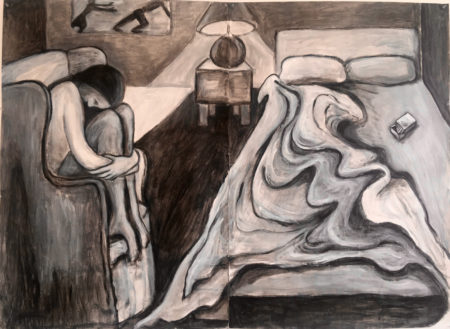
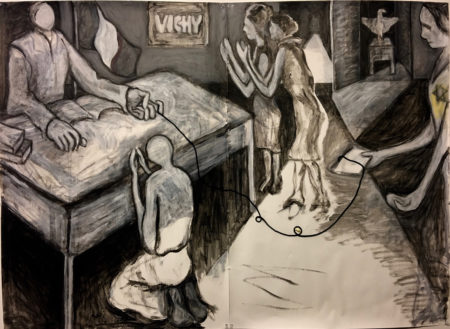

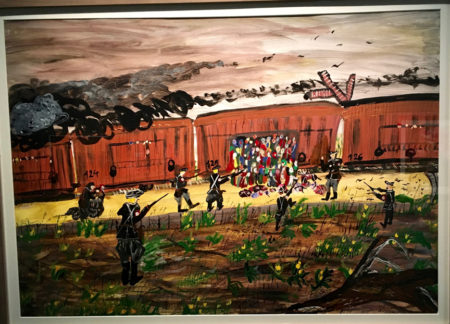
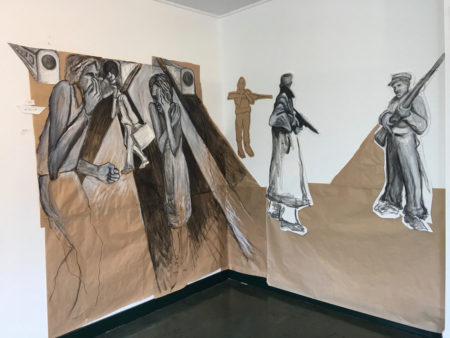
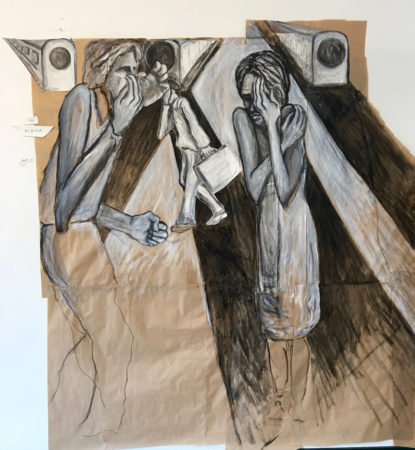

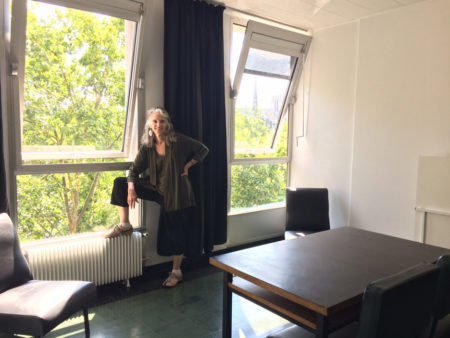
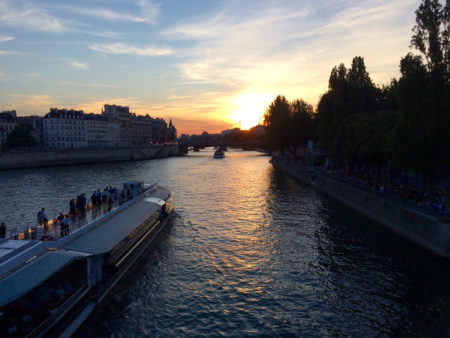
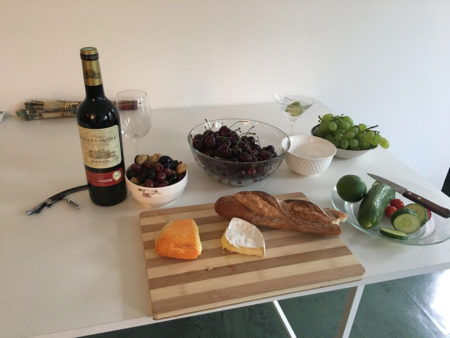 Just arrived at Cité Internationale des Arts in Paris for a six month residency in art and writing. Don’t ask about the seven month preparation effort… First there was making sure that I actually understood the letter written in French that suggested that I had been offered a residency, then spending a couple months trying to communicate to the office in Paris given time zone difference and language challenges and the cultural norms of office hours…I didn’t believe that I had been offered what turned out to be true… six months of uninterrupted time in a studio in the Marais to work on whatever I wanted… actually, I did propose a novel with images about a woman living in France during the Second World War, but propose and make happen are flexible concepts. I have begun such a project but it’s up to the winds of creativity what actually transpires.
Just arrived at Cité Internationale des Arts in Paris for a six month residency in art and writing. Don’t ask about the seven month preparation effort… First there was making sure that I actually understood the letter written in French that suggested that I had been offered a residency, then spending a couple months trying to communicate to the office in Paris given time zone difference and language challenges and the cultural norms of office hours…I didn’t believe that I had been offered what turned out to be true… six months of uninterrupted time in a studio in the Marais to work on whatever I wanted… actually, I did propose a novel with images about a woman living in France during the Second World War, but propose and make happen are flexible concepts. I have begun such a project but it’s up to the winds of creativity what actually transpires.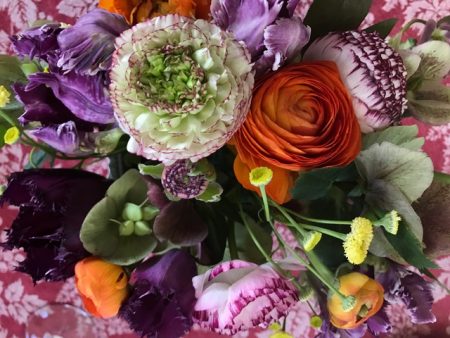 Speechless seemed to be the theme of my last entry… I claimed that I would be speechless if our current President won the election, a completely ludicrous prospect at the time I wrote the blog, and I was speechless after a visit to Poland at being confronted with what I had always known but never physically witnessed – the evidence of the eradication of the population of Polish Jews.
Speechless seemed to be the theme of my last entry… I claimed that I would be speechless if our current President won the election, a completely ludicrous prospect at the time I wrote the blog, and I was speechless after a visit to Poland at being confronted with what I had always known but never physically witnessed – the evidence of the eradication of the population of Polish Jews. 